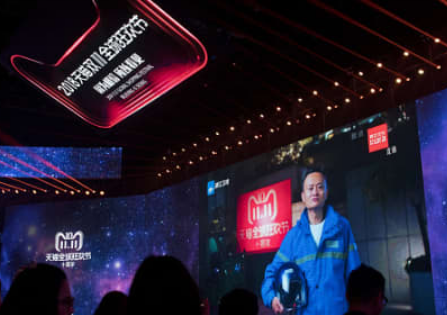Alibaba Adds Embedded CPU Core Designer
China’s internet behemoth, Alibaba Group, announced on Friday the acquisition of C-Sky Microsystems, a designer of China’s home-grown 32-bit embedded CPU processing core.
Alibaba did not disclose terms of the acquisition.
The move underscores a growing trend among companies, such as Google, Amazon, and Alibaba, who are eager to swallow up chip companies with a goal to design chips that fit their businesses.
As EE Times reported last year, even well before this acquisition was announced, C-Sky enjoyed a unique tie with Alibaba. As Xiaoning Qi, CEO of C-Sky, explained then, C-Sky was already the first chip company in the world to receive a sizable investment from Alibaba. C-Sky was founded in Hangzhou in 2001.
Although Qi declined to disclose the amount provided by Alibaba’s Jack Ma, he revealed that he and his mentor, Prof. Xiaolang Yan, C-Sky’s founder and chairman, have lobbied Alibaba to acknowledge that hardware technology is critical to the future of the e-commerce giant.
Reuters connected the Alibaba-C-Sky announcement with a seven-year U.S. government ban on selling chips and other components to Chinese telecom company ZTE. Current speculation has China, in the wake of the ZTE ban, coordinating with industry bodies, regulators, and China’s “big fund” to accelerate plans to make China’s IC industry self-sufficient.
Perhaps so, but Alibaba’s deal with C-Sky might as well have been well underway regardless of the ZTE ban.
C-Sky’s CEO, contacted by EE Times to shed more light on Alibaba’s acquisition, declined an interview. Alibaba is advising him not to talk until the deal is closed.
C-Sky’s business
To recap, C-Sky has been designing a 32-bit high-performance and low-power embedded CPU, then licensing the chip architecture. Since 2003, when it rolled out its first CPU core,CK510, C-Sky has been quietly developing a host of embedded cores, SoC platforms, software tools, and middleware. Last year, Qi told us that his company has picked up 70 licensees so far in China.
Of course, the obvious question among semiconductor market observers in the West is whether the global embedded market might be already cornered by dominant CPU processing cores such as ARM and MIPS. And what about the rising tide behind RISC-V?
Qi, at that time, told us: “China needs to work on the development of ‘core technologies,’ and we think our embedded CPU is one of them.” As for RISC-V, Qi called it “promising” and told us last year, “We are looking into it for our solutions for 64-bit CPU cores.” C-Sky is a platinum member of the RISC-V Foundation.
Alibaba and C-Sky alignment
C-Sky’s embedded CPU cores designed for the IoT market are closely aligned with Alibaba’s proprietary embedded OS, called Yun OS IoT. Having good visibility over both the CPU architecture and Alibaba’s software operating system is important, said Qi. Although Yun OS isn’t the only operating system that C-Sky supports, Qi believes that his team’s “deep collaboration” with Alibaba gives C-Sky the inside track in China’s IoT market, where the e-commerce behemoth dominates in data collection and analysis.
While Alibaba is currently working with Intel Corp. for its server architecture to be used in data centers, C-Sky sees for itself a critical role in IoT edge devices connected to the cloud.
C-Sky’s embedded CPU cores aren’t for baseband or apps processors in smartphones. “We’ve avoided that market,” said Qi. Instead, C-Sky is promoting its CPU cores for embedded and IoT applications. Its targets are systems for digital audio and video — including AI-based processing and recognition engines (for smart speakers like Amazon’s Echo), information security, network and communications, industrial control, and automotive electronics.
在线留言询价
- 一周热料
- 紧缺物料秒杀
| 型号 | 品牌 | 询价 |
|---|---|---|
| MC33074DR2G | onsemi | |
| CDZVT2R20B | ROHM Semiconductor | |
| RB751G-40T2R | ROHM Semiconductor | |
| TL431ACLPR | Texas Instruments | |
| BD71847AMWV-E2 | ROHM Semiconductor |
| 型号 | 品牌 | 抢购 |
|---|---|---|
| BU33JA2MNVX-CTL | ROHM Semiconductor | |
| TPS63050YFFR | Texas Instruments | |
| STM32F429IGT6 | STMicroelectronics | |
| BP3621 | ROHM Semiconductor | |
| IPZ40N04S5L4R8ATMA1 | Infineon Technologies | |
| ESR03EZPJ151 | ROHM Semiconductor |
- 周排行榜
- 月排行榜
AMEYA360公众号二维码
识别二维码,即可关注


请输入下方图片中的验证码:
























